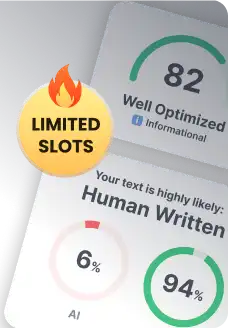In my early days of writing, I used to spend hours agonizing over complex vocabulary and convoluted sentence structures, believing that complexity equated to sophistication. However, I soon realized that true sophistication lies in simplicity. Effective writing is about conveying your message in a way that is clear, concise, and engaging, regardless of the topic’s complexity. In this article, we’ll explore the essential elements of effective writing, providing you with the tools to craft compelling content that resonates with your audience and leaves a lasting impact.
Key Takeaways
- Effective writing is clear, concise, and tailored to the audience, enhancing both personal and professional communication.
- Strong writing skills are crucial for career advancement, opening doors to new opportunities and fostering professional growth.
- Key elements of effective writing include clarity, coherence, and engagement, which help convey messages effectively.
- To improve your writing skills, practice regularly, seek feedback, and read a variety of materials to expand your understanding.
- Utilize techniques such as outlining and drafting to organize thoughts and refine ideas before finalizing your work.
- Remember that effective writing is a skill that can be developed over time with dedication and the right strategies.
What Is Effective Writing?
Characteristics of Good Writing
via GIPHY
Effective writing is clear, complete, concise, and correct. Clarity allows readers to understand the message effortlessly, achieved by straightforward language and avoiding jargon. Completeness ensures all essential information is present, answering potential reader questions.
Conciseness focuses the writing by removing unnecessary words, enhancing readability and engagement. Correctness in grammar, punctuation, and spelling upholds credibility and prevents distractions.
Audience awareness is key—tailor the tone and complexity based on their familiarity with the topic. Effective writing also communicates ideas accurately and persuasively, using logical arguments and evidence, appealing to both reason and emotion.
Benefits for Communication
Effective writing improves communication by reducing misunderstandings, essential in professional settings where clarity prevents costly errors. Clear, well-received messages also foster trust, strengthening relationships. Additionally, the logical presentation of information aids in problem-solving, enabling thorough analysis and informed decision-making.
Impact on Professional Success
Effective writing is pivotal for professional success, opening doors by demonstrating competence and attracting opportunities. Employers value clear communication for roles that require reports, emails, and presentations.
Strong writing skills are often key to career advancement and leadership roles, where communication is essential. Additionally, well-crafted documents enhance reputation, reflecting professionalism and attention to detail, setting one apart from peers.
Role of Writing in Career Growth
Importance in Job Searches
Effective writing is essential in job searches. It’s more than just putting words together; it’s about creating narratives that captivate. A strong resume and cover letter can set you apart, showcasing your skills, experiences, and personality professionally and engagingly.
Beyond that, consider how well-written LinkedIn profiles or personal statements can open doors to unexpected opportunities. When employers sift through numerous applications, what makes yours stand out?
It’s the clarity and precision of your words. Each sentence should serve a purpose, highlighting your strengths and aligning them with the job requirements. Use bullet points to present achievements and responsibilities concisely, making information both digestible and visually appealing.
Contribution to Career Advancement
Writing is essential for career growth, not just job acquisition. Clear communication in emails, reports, or proposals distinguishes you as a leader and reflects critical thinking. Effective writing enables you to articulate complex ideas concisely, resonating with colleagues and superiors.
Strong writing skills also make you a valuable asset in your organization, enabling you to craft key documents and lead communication-focused projects with confidence and clarity.
Understanding the Four Cs of Writing
The Four Cs—clarity, conciseness, coherence, and correctness—are essential for effective writing. Let’s break them down:
Want to try SurgeGraph for free?

Generate 20 documents

SEO tools (Auto Optimizer, Internal Linking, and more)

No credit card required
- Clarity: Ensure every word has a purpose. Avoid jargon unless necessary, and keep sentences straightforward.
- Conciseness: Remove unnecessary words. Get straight to the point without losing meaning.
- Coherence: Maintain a logical flow throughout your document, ensuring each paragraph connects seamlessly to the next.
- Correctness: Grammar is vital; errors undermine credibility, so proofread carefully.
Mastering these elements elevates your writing from good to exceptional, ensuring that whether composing a brief email or a detailed report, your message is impactful and clear.
Key Elements of Effective Writing
1. Use Active Voice
Active voice enhances clarity and engagement by making sentences direct. In an active voice, the subject acts, e.g., “The writer crafted a compelling story.” This structure keeps readers focused and ensures your message is understood without confusion.
2. Craft Concise Sentences
Conciseness maintains reader interest. Short, precise sentences convey information without overwhelming it. Eliminate unnecessary words while preserving essential details. For example, use “because” instead of “due to the fact that.” Brevity respects readers’ time and enhances comprehension.
3. Understand Your Audience
Knowing your audience shapes your writing. Are they experts or beginners? Tailor your language and tone accordingly, ensuring your writing resonates and is impactful.
4. Offer Valuable Content
Content should inform, entertain, or solve a problem. Provide useful insights and back up claims with facts or expert opinions to build trust, establishing authority and encouraging readers to return.
5. Simplify Word Choice
Complex vocabulary can alienate readers. Use simple words that communicate effectively without diluting meaning. Instead of “utilize,” say “use.” Clarity is more important than complexity.
6. Apply the Five Ws and One H
Who, what, when, where, why, and how to ensure completeness by covering all necessary aspects of a topic. These questions guide article structure, helping writers develop ideas thoroughly.
7. Incorporate Stories and Examples
Stories engage readers and make abstract concepts relatable. Use real-life examples to illustrate ideas clearly and persuasively, reinforcing understanding through practical application.
8. Utilize Positive Language
Positive language fosters a constructive tone and encourages reader engagement. Words like “achieve” and “improve” motivate action. Avoid negative phrasing, as it can deter readers and hinder understanding.
9. Read Aloud for Clarity
Reading aloud identifies awkward phrasing and errors that silent reading might miss, improving rhythm and ensuring smooth sentence flow. This practice enhances clarity and effective communication.
Techniques to Improve Writing Skills
Grammar Enhancement Tips
Mastering grammar is essential for effective writing as it ensures clarity and professionalism. Start by focusing on common errors, such as subject-verb agreement, verb tenses, and punctuation. Use tools like Grammarly or Hemingway Editor to detect mistakes in real time.
Practice regularly by writing various types of content to enhance grammar, clarity, and style. Join online writing forums or groups to share your work and receive constructive feedback, as exchanging ideas with peers or mentors helps identify areas for improvement.
Want to try SurgeGraph for free?

Generate 20 documents

SEO tools (Auto Optimizer, Internal Linking, and more)

No credit card required
Finally, read extensively. Immersing yourself in diverse texts expands your vocabulary and provides insights into different writing styles. Pay attention to how authors construct sentences and use language effectively, which will naturally improve your grammatical skills over time.
Structural Organization Methods
A well-organized piece of writing guides the reader smoothly from one point to the next. Begin with an outline to map your main ideas and supporting details, serving as a blueprint for logical structure.
Use clear headings and subheadings to break complex information into manageable sections. This enhances readability and improves SEO, making your content more accessible to search engines.
Incorporate transitional phrases to connect ideas seamlessly. Words like “however,” “furthermore,” and “therefore” serve as bridges between sentences, maintaining the flow of thought.
Finally, seek feedback from readers or mentors regarding your work’s structure. Their insights can identify areas needing reorganization or clarification, helping you refine your skills.
Proofreading Strategies
Proofreading is the final polish on any written piece, involving checks for spelling, grammar, and punctuation errors after completing the initial draft. Start by taking a break; this refreshes your perspective and makes it easier to spot mistakes.
Read your work aloud to catch awkward phrasing or run-on sentences that may be overlooked when reading silently. Listening to your words provides a new perspective on sentence structure and flow.
Use a checklist during proofreading:
- Check for consistency in tense and point of view.
- Ensure all names and terms are spelled correctly.
- Verify that all references are accurate and properly cited.
- Look for any repeated words or phrases.
Finally, consider professional editing services for an objective review of your work, ensuring it is polished before publication.
Frequently Asked Questions
What is effective writing?
Effective writing conveys your message to the reader. It involves clarity, conciseness, and engagement. The aim is to inform or persuade with minimal confusion.
How does writing affect career growth?
Strong writing skills enhance communication, leading to better job performance. They can open doors to promotions and leadership roles by showcasing your ability to convey ideas effectively.
What are the key elements of effective writing?
Key elements include clarity, coherence, and conciseness. Good writing should be engaging and tailored to the audience’s needs, ensuring the message is understood.
What techniques help improve writing skills?
Start with outlining your ideas. Use active voice, vary sentence length, and proofread meticulously. Engaging in peer reviews can also provide valuable insights.
Can effective writing be learned?
Yes, it can be learned through practice and feedback. Consistent effort in honing your skills will lead to improvement over time.





